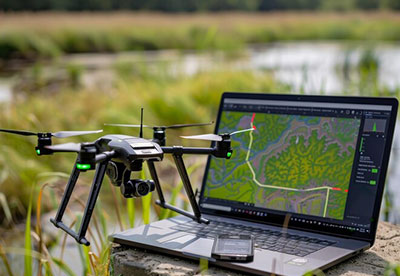The Oil and Gas industry is evolving, and oil fields are now equipped with the types of machinery that are fast and reliable to process hundreds of metric tons of crude oil and ensure safety along with better production. This gave the industry a ton of opportunities to grow business and create opportunities to maximize profits.
Implementing Business Intelligence can help you manage data from all the sources across the field and implementing brilliant visualizations can help you improve decision-making and help you stand out. And with more than 80% of oil and gas businesses operating digitally, it would be safe to say that implementing Advanced Analytics and Business Intelligence is now a necessity more than an option. Here are 9 ways businesses in Oil and Gas Industries are implementing Business Intelligence to stand out from the competition
1. Data Integration and Management
All businesses in the oil and gas sector, whether it’s a small refinery or a huge exploration unit, generate an exceptional amount of data from various devices, equipment, and sensors used in drilling, refining, and exploration activities.
Business Intelligence tools help in integrating data from all the sources and managing this data efficiently. Businesses are creating a centralized data repository that is easy to access and creating visualizations that are easy to understand.
2. Exploration and Reservoir Analysis
Business Intelligence tools can help process seismic data, geological information, and drilling data from across all owned equipment and the web to assist in the characterization of reservoirs and field optimization. This helps stakeholders to make informed decisions about where the drilling locations should be and what production strategies can help maximize profits.
3. Production Optimization
In the oil and Gas industry, Business Intelligence software can be found in oil fields to monitor oil production levels, identify performance bottlenecks, and optimize field operations in order to maximize efficiency as efficiently as possible. As a result of real-time data analytics, all production processes can be adjusted immediately to improve quality standards and meet the demands of the rapidly shifting market.
4. Enable Predictive Maintenance
Using Business Intelligence and advanced data analytics enables the oil and gas industry to become more efficient by adopting predictive maintenance of equipment and infrastructure. By actively analyzing historical data and similar anomalies, companies can predict when equipment is likely to fail, which can help them reduce downtime and minimize operational disruptions resulting in more sales opportunities.
5. Cost Control
Business Intelligence software can assist in cost analysis by providing detailed insights into all expenditures across various ongoing projects and field operations. This enables companies to identify various cost-saving opportunities and allocate resources more effectively to improve profits.
6. Market Analysis
Oil and gas companies use advanced analytics and Business Intelligence to track global market trends, pricing fluctuations, and geopolitical events across the globe that impact the industry. This information helps in making strategic decisions that can help to improve production levels and optimize pricing.
7. Supply Chain Management
Maintaining efficient supply chain management is crucial for all businesses in the oil and gas industry. Business Intelligence tools provide real-time insights into the entire supply chain, helping companies optimize their inventory levels, reduce all transportation costs, and manage asset acquisitions effectively.
8. Asset Performance Management
Business Intelligence aids in assessing the performance of all assets, such as pipelines, rigs, and refineries. By analyzing data on the performance of field assets, companies can extend the overall lifespan of equipment, reduce maintenance costs, and improve profitability.
9. Risk Management
Business Intelligence tools are used in fields to assess and mitigate risks associated with exploration and production activities. This includes identifying various safety hazards, keeping track of nature-based risks, assessing geopolitical risks, and managing financial problems if persist.
Conclusion
Businesses in the oil and gas industry comprise a wide range of resources and managing all of them collectively and managing data collected effectively requires a lot of effort. This leads to unnecessary delays and maintenance costs at times.
At Canopus Infosystems, we understand how important it is for the Oil and Gas Industry to maintain integrity and make quick decisions. So, our Advance Analytics and Business Intelligence solutions are automated, and creative, and can help to visualize unified data and make informed decisions that can help you stand out from the competition.
3 mins read


















